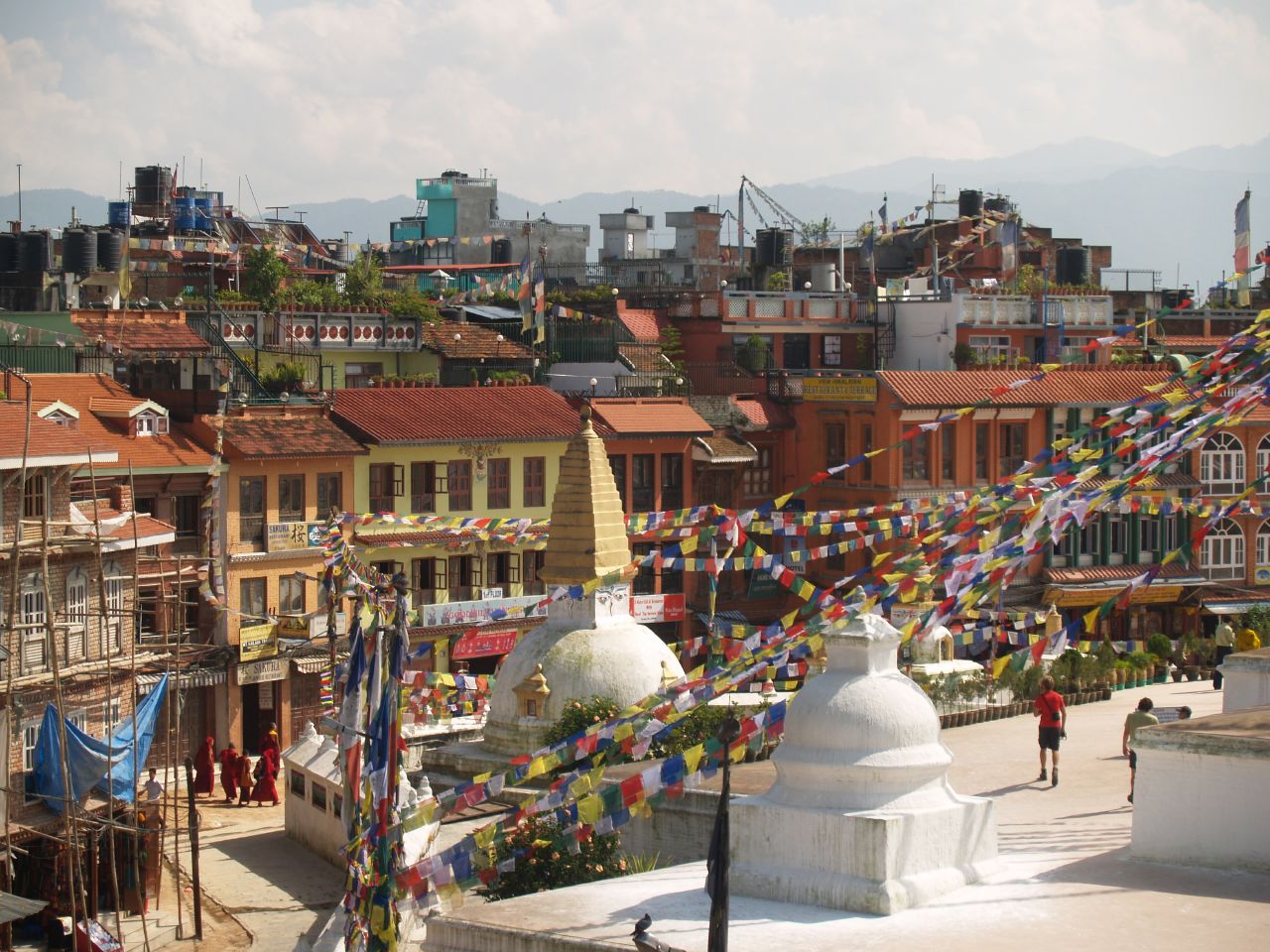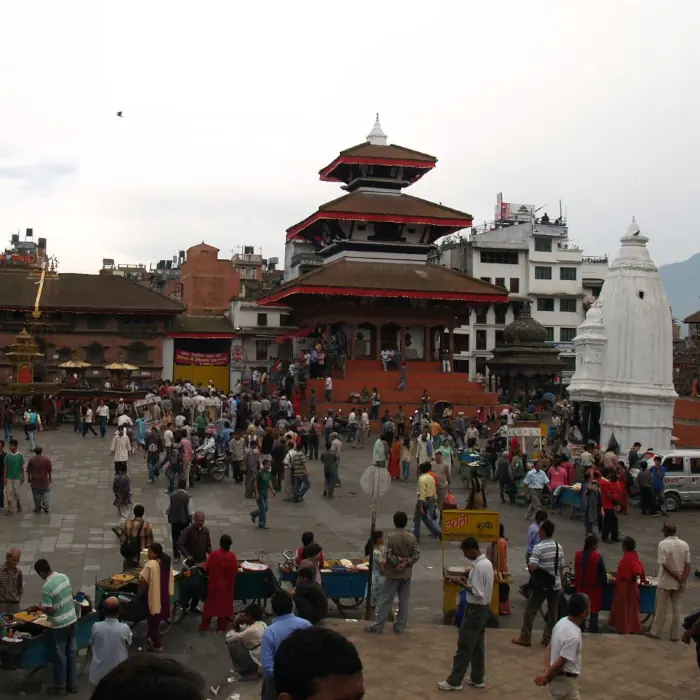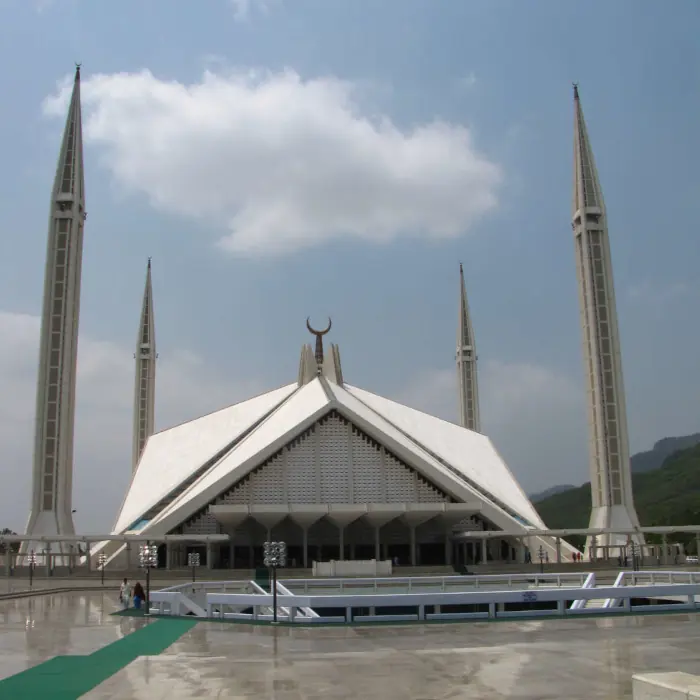Nepal
Nepal, a country of majestic landscapes and vibrant traditions, boasts a heritage that stretches back thousands of years. Nestled in the heart of the Himalayas, it is a land where spirituality, art, architecture, and history intertwine to create a rich cultural fabric. Nepal’s heritage is shaped by its ancient kingdoms, diverse ethnic groups, and the sacred bond it shares with the mountains, making it a unique blend of natural beauty and cultural richness.
Ancient History and Spiritual Significance
Nepal’s heritage dates back to the ancient Kirat period, with early settlements in the Kathmandu Valley, which later flourished as the cradle of great civilizations. Nepal is the birthplace of Lord Buddha, in the town of Lumbini, making it a sacred pilgrimage site for Buddhists worldwide. The influence of Buddhism, along with Hinduism, has profoundly shaped the nation’s culture, arts, and daily practices.
Hinduism, which forms the backbone of Nepali spirituality, sees the worship of gods and goddesses such as Shiva, Vishnu, Lakshmi, and Durga. The fusion of Hindu and Buddhist traditions has given rise to a unique culture that is reflected in the art, festivals, and rituals practiced throughout Nepal.
Architectural Heritage: Temples, Palaces, and Stupas
Nepal’s architecture is a testament to its rich cultural heritage, with structures that reflect the country’s religious devotion and artistic excellence. The Kathmandu Valley, a UNESCO World Heritage Site, is home to some of the finest examples of traditional Nepali architecture.
- Swayambhunath Stupa (Monkey Temple): This ancient Buddhist stupa, perched on a hilltop in Kathmandu, is one of the most iconic landmarks in Nepal. Its distinctive design symbolizes enlightenment, and it attracts pilgrims from all over the world.
- Pashupatinath Temple: A sacred Hindu temple dedicated to Lord Shiva, located on the banks of the Bagmati River. It is an important pilgrimage site for Hindus and is famous for its pagoda-style architecture.
- Boudhanath Stupa: Another UNESCO World Heritage Site, this is one of the largest and holiest stupas in Nepal, built in the 14th century and revered by Buddhists.
- Durbar Squares: The Kathmandu Durbar Square, Bhaktapur Durbar Square, and Patan Durbar Square are remarkable examples of traditional Nepali palace architecture, featuring intricately carved woodwork, stone sculptures, and ancient temples.
These sites serve as physical manifestations of Nepal’s rich cultural and spiritual history.
Religious and Spiritual Traditions
Nepal is a land of profound spirituality, where Hinduism and Buddhism coexist harmoniously. The religious practices of the people are deeply embedded in their daily lives.
Hinduism and Buddhism
Nepal is predominantly Hindu, and religious festivals such as Dashain, Tihar, and Holi are celebrated with great enthusiasm. Dashain, the longest and the most important festival in Nepal, honors the triumph of good over evil, marked by the sacrifice of animals, prayers, and family reunions. Tihar is celebrated with the worship of animals and lights, symbolizing the victory of light over darkness.
Buddhism, on the other hand, has a deep influence on Nepali culture, with practices such as meditation, mantra chanting, and pilgrimage playing a central role in the lives of many. The birth of Buddha in Lumbini has made Nepal an important destination for Buddhist travelers and scholars. The Tihar festival also overlaps with Buddha’s teachings, highlighting the interconnectedness of Nepal’s religious traditions.
Festivals of Nepal
Nepal’s festivals are colorful, diverse, and deeply spiritual. Festivals are often community-centered, bringing together people of different ethnicities and backgrounds to celebrate and share joy.
- Makar Sankranti: A festival marking the end of winter and the beginning of the harvest season, celebrated by flying kites and feasting on sweets.
- Maghe Sankranti: Celebrated in the Himalayan regions, this festival signifies the onset of longer days and the beginning of the sun’s journey northward.
- Buddha Jayanti: Celebrating the birth, enlightenment, and death anniversary of Lord Buddha, this festival sees processions, prayers, and cultural performances.
Each region of Nepal has its own unique festivals, with different ethnic groups adding to the rich cultural mosaic of the country.
Nepali Music, Dance, and Art
Nepal’s musical and dance traditions are diverse, with each ethnic group contributing its own unique flavor.
Traditional Music and Instruments
Nepal’s music reflects the culture and traditions of its people, with flutes, drums, sitars, and tabla forming the core of Nepali classical music. Traditional folk songs like “Dohori” (a form of dialogue in song) and “Bhaka” (sung stories of mythological tales) are performed at festivals and gatherings.
The Singing Bowls of Nepal, used in Buddhist rituals, are also revered for their soothing, meditative sounds, adding to the spiritual experience of the country.
Dance Forms
Traditional Nepali dance is a vivid expression of culture and spirituality. Newar culture, for example, boasts intricate dances like the “Lakhey dance” (a demon-like dance performed to bring good fortune). The “Tihar” dance is performed during the Tihar festival, while the **”Gorkha” and “Chhewar dances” celebrate the rites of passage among young boys.
The Madhesi, Tharu, Sherpa, and other ethnic communities also have their distinct folk dances that highlight regional diversity.
Nepali Cuisine: A Blend of Flavors
Nepali cuisine is rich in flavors and diverse in its offerings, shaped by the country’s geography and ethnic diversity. The staple food in Nepal is dal (lentils), bhat (rice), and tarkari (vegetable curry). However, the regional variations make the food even more exciting.
- Momo: A popular dumpling dish, often filled with meat or vegetables, inspired by Tibetan and Chinese culinary traditions.
- Sel Roti: A traditional Nepali rice doughnut, typically prepared during festivals.
- Thakali Food: A rich, flavorful cuisine from the Thakali people of the Mustang region, with curries and lentil-based dishes.
- Chatamari: Often called the “Nepali pizza,” it is a savory rice crepe topped with meat, vegetables, and spices.
Nepal’s street food culture is thriving, with dishes like chatpate, samosas, and panipuri adding to the country’s vibrant culinary scene.
Handicrafts and Textiles
Nepal’s handicrafts are renowned worldwide for their quality and intricate designs. The country’s handwoven textiles, jewelry, wood carvings, and metalwork reflect the skill of artisans passed down through generations.
- Pashmina shawls: Nepal is famous for producing some of the world’s finest Pashmina wool, which is used to make high-quality shawls and scarves.
- Thangka paintings: Traditional Buddhist art painted on fabric, often depicting deities, mandalas, and religious symbols.
- Wood carvings: Nepali artisans are known for their skillful woodwork, creating intricate pieces that are often used in temples, palaces, and homes.
Nepal’s Living Heritage: A Blend of Tradition and Modernity
Nepal is a country that blends its traditional heritage with the influences of the modern world. Despite rapid modernization, Nepali culture remains deeply rooted in its historical and spiritual traditions.
Today, Nepal’s youth are embracing global culture while keeping their traditions alive through music, fashion, and art. Traditional festivals and ceremonies are still widely practiced, with Nepal’s unique way of life becoming a symbol of cultural preservation amidst the challenges of modern times.
Conclusion
Nepal’s heritage and culture represent a perfect harmony between its ancient traditions and the dynamic forces of modernity. From its architectural marvels to its spiritual practices, rich culinary traditions to its art and music, Nepal is a country where culture flourishes amidst natural beauty. The legacy of its past continues to shape its future, making Nepal a beacon of heritage, spirituality, and diversity for the world to admire.





